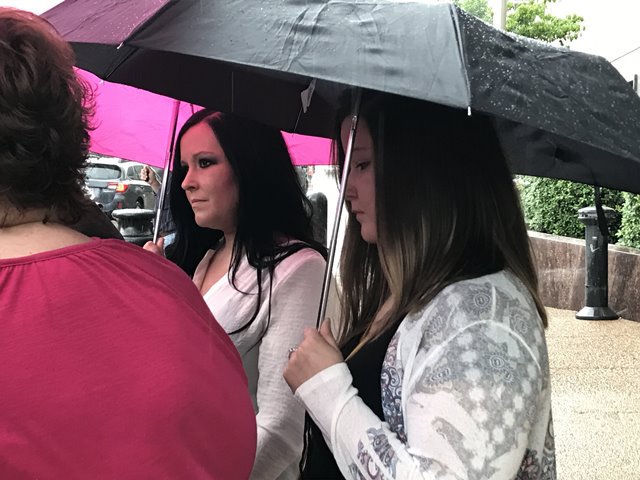Fans of the annual Eurovision Song Contest gathered in the Ukrainian capital for Saturday’s grand final, when 26 acts will take to the stage in a riot of costume and glitter.
The Eurovision Song Contest features singers from the 43 countries that make up the European Broadcasting Union (EBU.) This year’s finalists have been whittled down from a total 42 entries through semi-finals held Tuesday and Thursday.
Although the contest is supposed to be nonpolitical, this year’s Eurovision has seen its share of controversy. Russia should have been the 43rd entrant in the show, but pulled out last month amid a row over its chosen singer, Julia Samoylova.
Ukraine banned Samoylova from traveling to the capital of Kiev after allegations emerged she illegally entered Crimea to perform in 2015.
Ukranian law requires visitors to enter and exit Crimea — annexed by Russia in 2014 — with a special government permission since 2015, according to the Ministry of Foreign Affairs of Ukraine.
Eurovision organizers condemned Ukraine’s decision to ban Samoylova but said Russian could instead take part in the competition via satellite or simply choose a different contestant who could legally travel to Ukraine.
However, Channel One, Russia’s TV network, rejected both options and announced it would not broadcast this year’s competition. Russian viewers will not be able to vote in the contest either.
After Ukraine won in Sweden in 2016, with a song that was controversial in its own right, there were concerns that the security situation in the country’s east — where the Ukrainian military is fighting Russia-backed separatists — might rule out holding the next contest in Kiev.
But Ukraine was determined to host as expected and organizers announced earlier this month that all the tickets for the grand final had sold out.
Heavy security is in place in Kiev for the event in the city’s International Exhibition Center.
One dignitary, however, won’t be president. Ukrainian President Petro Poroshenko canceled his visit to the final after deadly shelling in the east of the country Saturday, according to his official Facebook account. Four civilians were killed and one seriously wounded by shelling in the town of Avdiivka on Saturday evening, the country’s Anti-Terrorist Operation press center said.
Some have remarked that the Eurovision Village, where visiting fans can gather to watch the shows live on big screens, is in central Khreshchatyk Street and Independence Square, scene of bloody protests little more than three years ago.
But the contest’s many fans, some so dedicated that they travel each year to the host city, are ready for the big finale.
“I’m very proud that Ukraine has hosted the Eurovision Song Contest at such a high level,” Zhenia Halych, lead artist of the Ukrainian band O.Torvald, told a Eurovision news conference Friday.
How it works
Eurovision is known for its theatrical production, unique songs and fervent patriotism. Songs must be performed live, be no longer than three minutes and can be sung in any language.
Viewers of participating broadcasters can vote for their favorite song but not for their own country. The votes can be cast via telephone, SMS or using the official app. There is also a jury of professionals in each nation to award points.
When the performances end, the scores from each pf the participating countries are announced live on air.
Block voting, nationalism and a settling of old scores have long been accusations when it comes to Eurovision. For many viewers, watching the votes come in as expected from certain nations just adds to the fun.
US viewers can watch the grand final streamed live via Logo, though they won’t be able to cast votes.
What you need to know
The first Eurovision contest was held in 1956, when just seven countries took part, making it one of the longest-running TV shows in the world. Last year, 204 million people watched at least some part of the contest from around the world.
Six countries are always guaranteed a spot in the final — the host nation and France, Germany, Spain, Italy and the United Kingdom, because they pay the most money toward the cost of the competition. Since 2015, Australia has been among the contestants. Other non-European entrants include Israel and Azerbaijan.
By the time the curtain falls on the 2017 contest, 1,479 songs will have been performed in total, according to Eurovision.
Ireland has done best over the decades, winning seven times. Sweden has won the contest six times, while Luxembourg, France and the United Kingdom have won five times.
Victory comes at a cost, however. The winning nation must host the contest the following year, which doesn’t come cheap.



